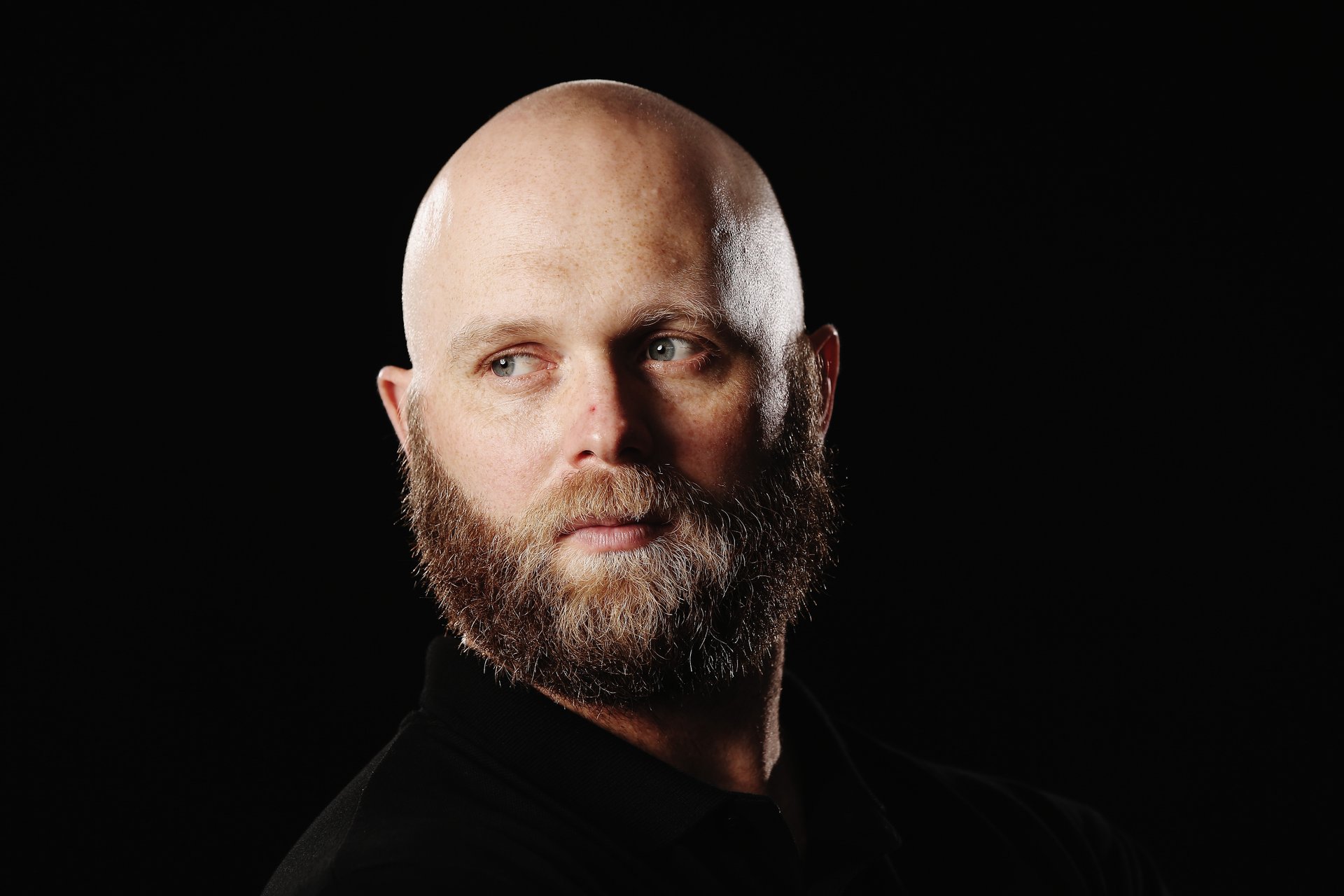
Richie Patterson fully understands the virtue of patience.
A weightlifter since the age of 15, he’s been competing for 18 years – a long time to endure the intensity and pressure of high-level competition.
[embed width="480" height="270" class="leftAlone" thumbnail="https://i.ytimg.com/vi/aCeupN7UoFk/hqdefault.jpg?r=82853"]http://youtu.be/aCeupN7UoFk[/embed]
Much of his success – including Commonwealth gold and silver - has come down to patience, and endurance.
It takes “thousands of lifts, tens of thousands of kilos, to achieve the dream of the perfect lift,” he says.
Even executing that perfect lift on the day requires patience. “The lift is about holding position, and holding and holding and holding, until the time is right to really deliver the power.”
His success comes down to having a long-term plan. Patterson approaches his training “by looking at the grandstand – the big picture”; he breaks it down into small, manageable goals. Each training session fits into a larger plan for that week, which fits into the plan for that month, which fits into a plan for the next competition, and then the next Olympic cycle.
That’s where mental endurance comes into play. In weightlifting, there’s a huge amount of repetition.
“You’re lifting the same weights – day after day – so to cope, you need a lot of plans and a lot of little goals. It keeps you motivated when you achieve each goal,” he says.
Patterson believes becoming a good weightlifter is like building a house. You have to build good foundations and continue from there. He has three Commonwealth Games and two Olympics under his belt, but he has never been injured – a circumstance he puts down to his solid “foundations.”
It took Patterson a long time to master competitions. But experience has taught him the importance of staying calm and almost containing his power.
He loves the “measurable” nature of weightlifting: You get out what you put in.
“There’s not a lot that’s left to chance. You predetermine your outcome by how much work you’ve done. It’s a lot more predictable than other sports,” he says.
Growing up on a dairy farm on the Manukau Peninsula, Patterson took up lifting to help his rugby career. Then when he saw New Zealand lifter Nigel Avery competing at the 2000 Olympics, it “flicked a switch”. He, too, wanted to be an Olympian.
Now he hopes he can do the same for another potential athlete. “To know that I’m an inspiration to others makes me feel proud, that one day I could be watching a young kid on the Olympic stage that I may have had an impact on. They may see me at the Olympic Games and go ‘Well that’s something that I really want to pursue’.”
It’s his own dream to continue the legacy of those weightlifters who have gone before him.